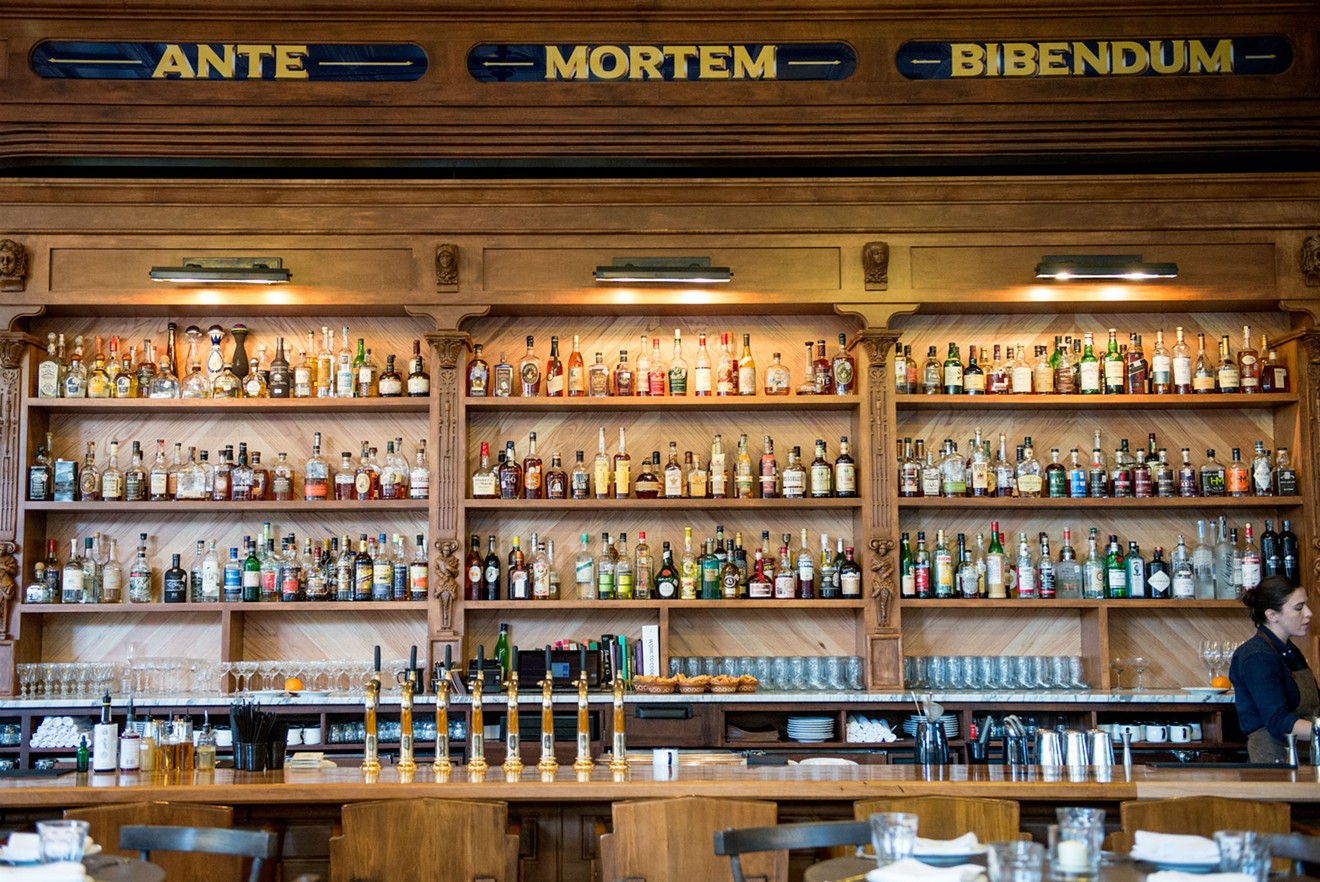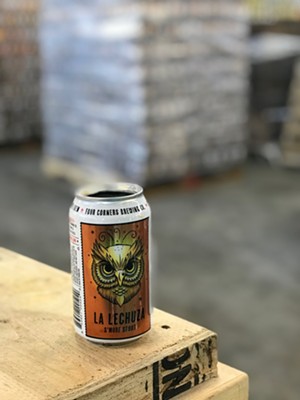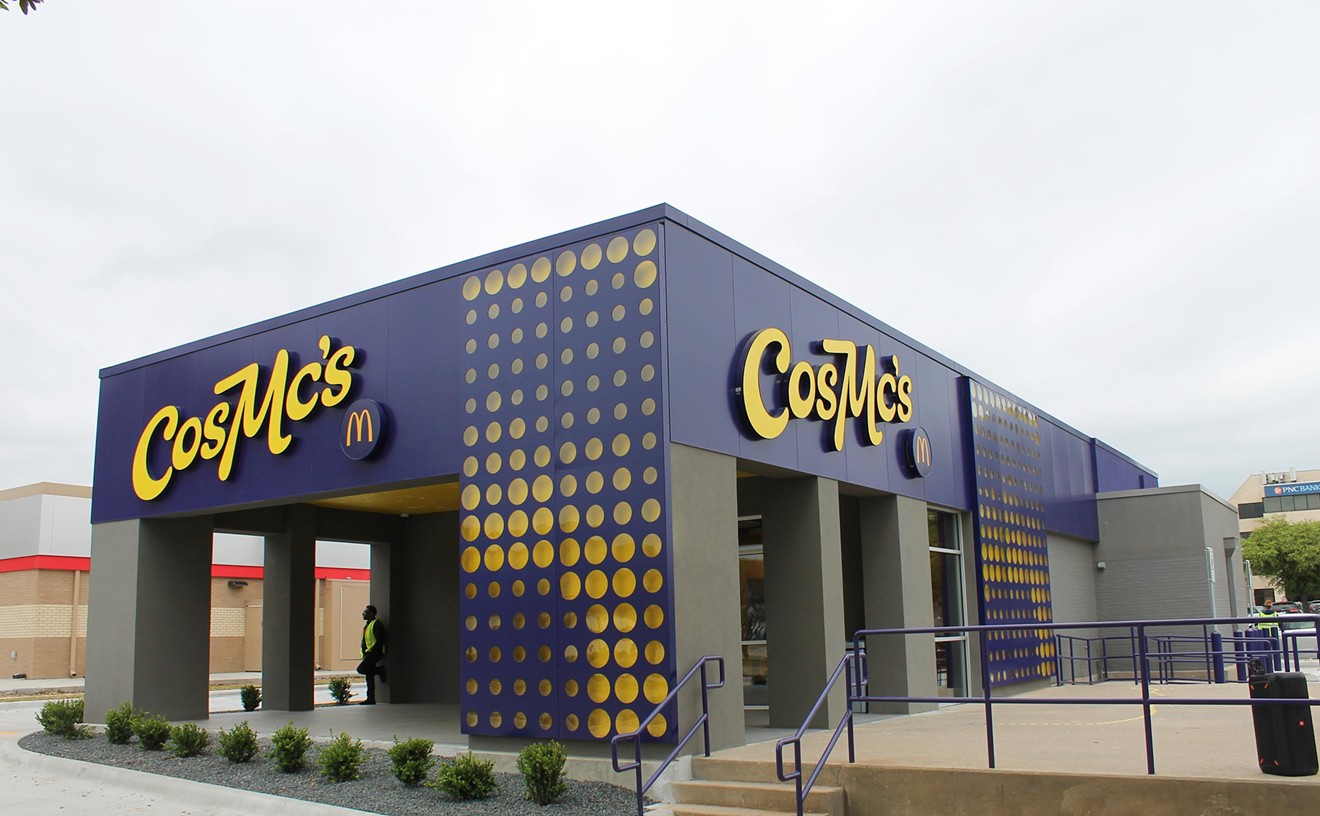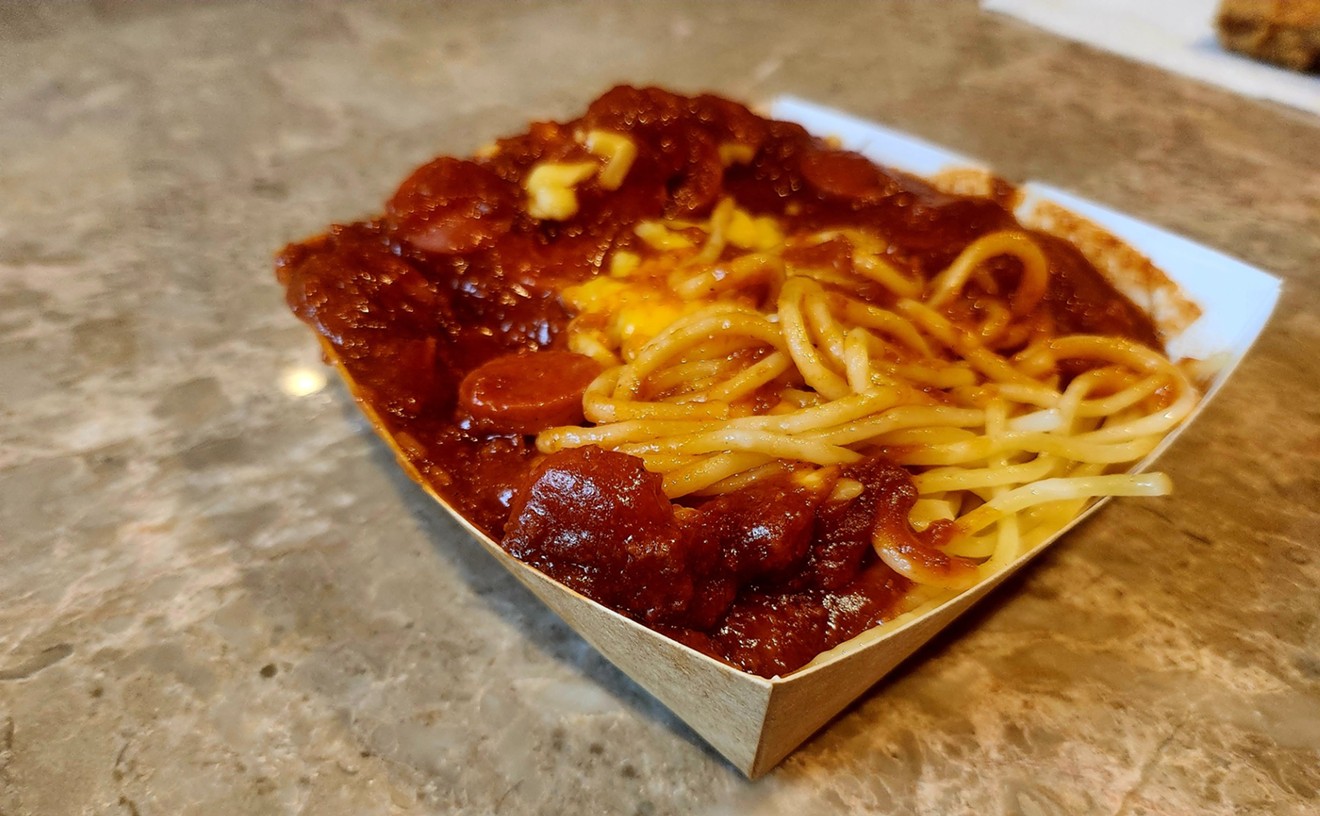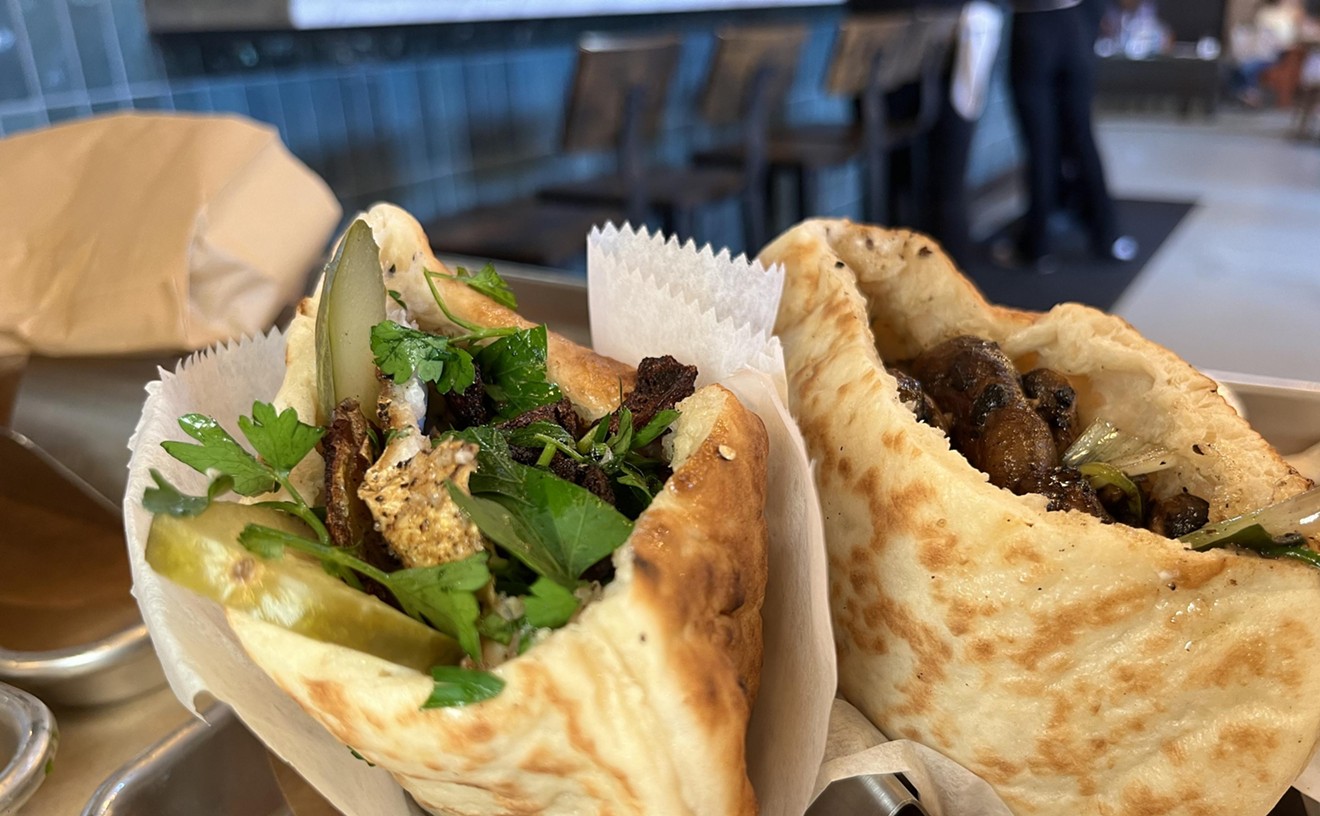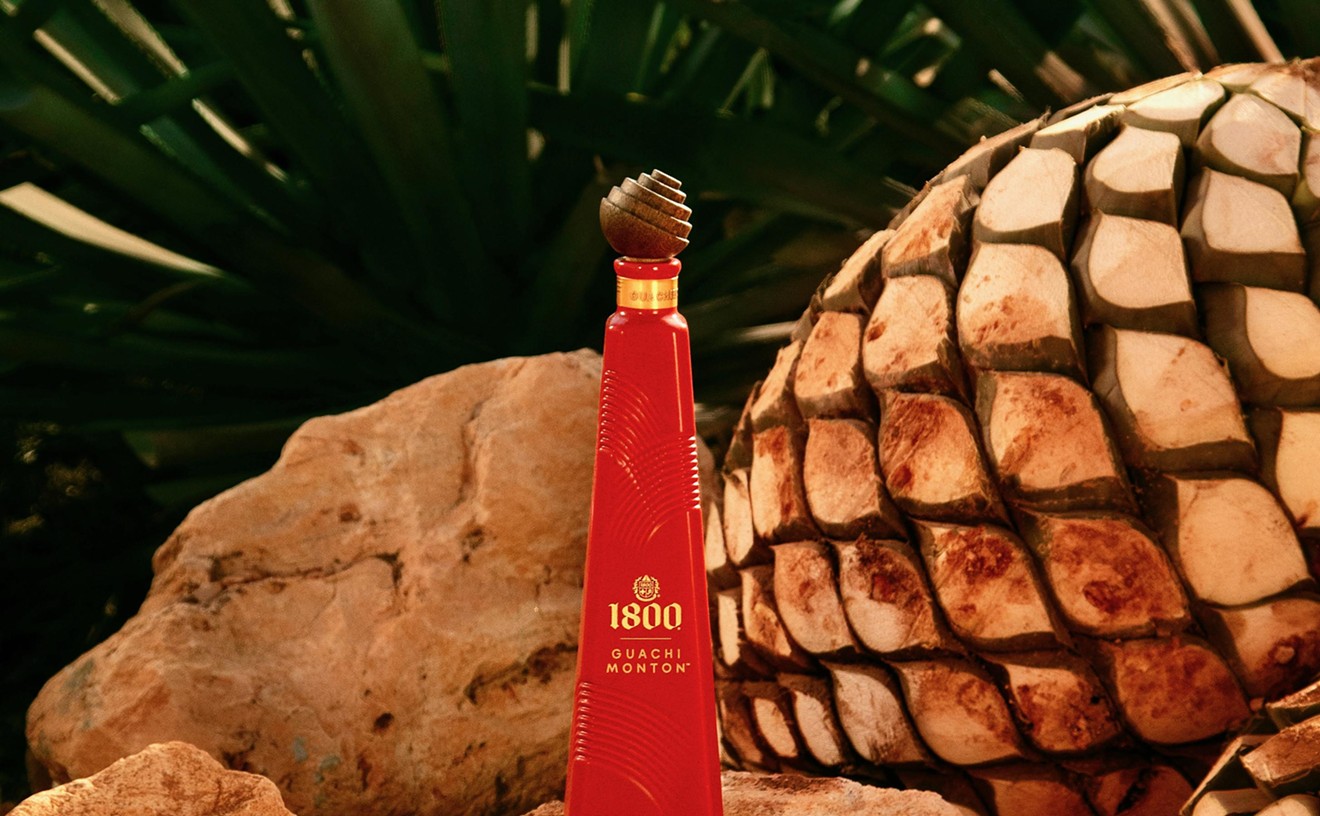Buying drinks for the cooks is trendy in some quarters. Every time I see the suggestion on the menu, I wonder: What are the rules? Which beer gets handed out in the back? How drunk are the cooks while they work?
To find out, I spoke to the chef at the only current Dallas restaurant to feature “beers for the back” on its menu, Billy Can Can, and leaders of two recently closed Dallas restaurants that also employed the practice, FT33 and The Blind Butcher.
For Billy Can Can executive chef Matt Ford, the idea grew from a desire to boost kitchen morale.
“The back-of-house employees are never used to getting tips from the guests,” Ford explains. “It’s very common for guests to come drink at the bar and want to buy the bartender a drink, or a table that bought a really nice bottle of wine might want to show the server a splash of it.”
Beers for the back at his restaurant started out as more a behind-the-scenes policy — after especially profitable shifts, staff could enjoy one drink — but adding the option to the menu for $10 has provided diners with an extra way to show appreciation for their cooks.
At Billy Can Can, when customers order a round for the kitchen, someone on staff — or the round-buying patrons, if they ask nicely — will ring a bell in the dining room. It’s a trick borrowed from the Publican in Chicago, and it sets the dining room abuzz.
“As soon as the first bell rings, it becomes contagious,” Ford says. “Everybody is grabbing their server and going, ‘What does that mean? What’s going on?’” On average, the bell gets rung about five times a night, but the record for “beers for the back” orders in a single night is a jaw-dropping 33.
Billy Can Can’s cooks follow an orderly set of rules. There’s no drinking while working; beers are passed around after the restaurant closes for the night. If a cook doesn’t want beer that night, she can opt for a cash payout instead. Employees may choose any beer they please, but with a two-drink limit. (There's no limit on the cash option; the night of the 33 rounds, six cooks were working, so the tip-out was $55.)
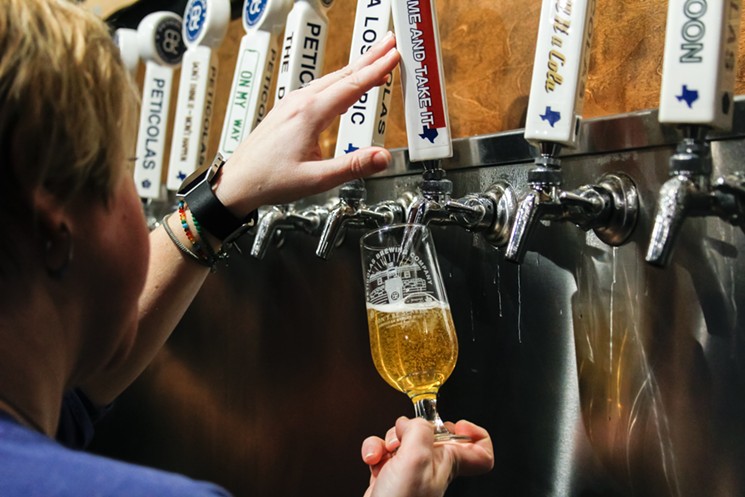
Line cooks shouldn't always expect craft beers like these — at FT33 and The Blind Butcher, a round for the kitchen meant Lone Star or Pabst Blue Ribbon.
Kelsey Shoemaker
Those rules speak to the danger of allowing drinking in any workplace.
“A lot of the restaurants that I’ve worked at, they don’t offer their employees alcoholic beverages at all while they’re there,” Ford says. “It is a liability. And that’s why we draw the limit at two beers.”
Matt McCallister, executive chef of the upcoming restaurant Homewood, agrees that it is a liability. He learned that the hard way at his previous restaurant, FT33, which in its early years allowed diners to buy a round of beers for the kitchen. Asked what rules FT33 followed, McCallister laughs out loud.
“There weren’t really any rules,” he says. “Initially, if somebody bought a round of beers for the kitchen, we would just drink them. But then sometimes, you’d run into a situation where there were too many beers bought for the kitchen. Halfway through a Saturday dinner service, your kitchen would be a little tipsy.”
A round of beers at FT33, McCallister recalls, was about $15. The beer of choice was Lone Star.
“It’s not like it’s very expensive beer," he says.
At The Blind Butcher, which closed last summer, owner Josh Yingling thinks that the beer of choice was also Lone Star, or maybe Pabst Blue Ribbon. His team didn’t have the same problems as FT33’s; he recalls that customers purchased beers for the kitchen “not often, and never too much.”
“Essentially we thought that tips go to servers for good service, so maybe if you liked the food, you would buy the kitchen a beer or two,” Yingling says. “'Cause everyone likes beers.”
McCallister, who has been sober for “going onto three years,” looks back on his beers-for-the-kitchen days with regret.
“Going forward, I would never do that,” he says. “I have a very strict no-alcohol-whatsoever policy. If you want to drink, you can leave and go drink somewhere else. That’s kind of my more mature self speaking. Every single issue that I’ve ever run into in my life where I got in trouble, drugs and alcohol were involved in every single dumb fuckin’ decision.
“I don’t think it’s the smartest idea for anybody to do, personally,” he continues. “You’re taking a lot of liability on. That cook gets in a car accident on the way home, you lose your restaurant. That’s real serious. I don’t think we ever take that into consideration. That’s some serious shit. Or you have employees that are having drinks after work and then one makes an improper pass at another and you’re dealing with a sexual harassment case. From my perspective, an employee can’t even go home and come back in normal clothes and have a drink. This is already a really tough industry anyway, so why do we want to add anything to it that would ruin it for you?”
For his part, Ford says his team at Billy Can Can is tightly disciplined enough to handle the challenge.
“We have some responsible guys in there,” Ford says. “We never feel like any of them are irresponsible or will try to sneak a third beer or take one on the way out. They don’t have that kind of personality.”
That’s especially true because most of the restaurant’s cooks have two jobs, and they genuinely do not want to drink beer before an early wake-up time.
“We kind of came to an agreement, it kind of worked out to be a great thing, that we more or less always have five stations at night, it’s $2 a cook,” Ford explains. “So if they want to take it as a tip, a percentage, so if they ring 10 bells, $20, they can take it as petty cash at the end of the week. Or if they want the beer, they can have up to two beers at the end of the night. More often than not, it’s a weekly tip-out, almost like being a server.”
He says his staff enjoys uncommonly high morale — there’s been practically no turnover on the line since opening last summer — and he thinks that the beers for the back are a big part of the reason.
“I don’t really want to brag about how the operation works at BCC because then all the other restaurants will adopt it,” Ford says.
Another big fan of Billy Can Can’s system is its marketing and media manager, Leslie Brenner, the former food critic at The Dallas Morning News. Ford says Brenner buys the kitchen a round every time she visits — and she’s hardly new to the practice.
“I used to buy beers for sushi chefs in LA fairly regularly,” Brenner says.
Buying a drink for the chef is a time-honored tradition at many sushi restaurants — including one in Dallas. Tei Tei Robata doesn’t publicize its “buy a round” option on the menu, and did not respond to a request for comment for this article, but regulars know to ask. One such regular, Joey Stewart, explains that Tei Tei Robata’s buy-a-round is a serious endeavor — it costs about $60.
“It actually was a round for the entire staff, whatever they liked to drink,” Stewart says. “Some got beer, some got wine. I’m always a bottle of sake into it by the time I do it.”

